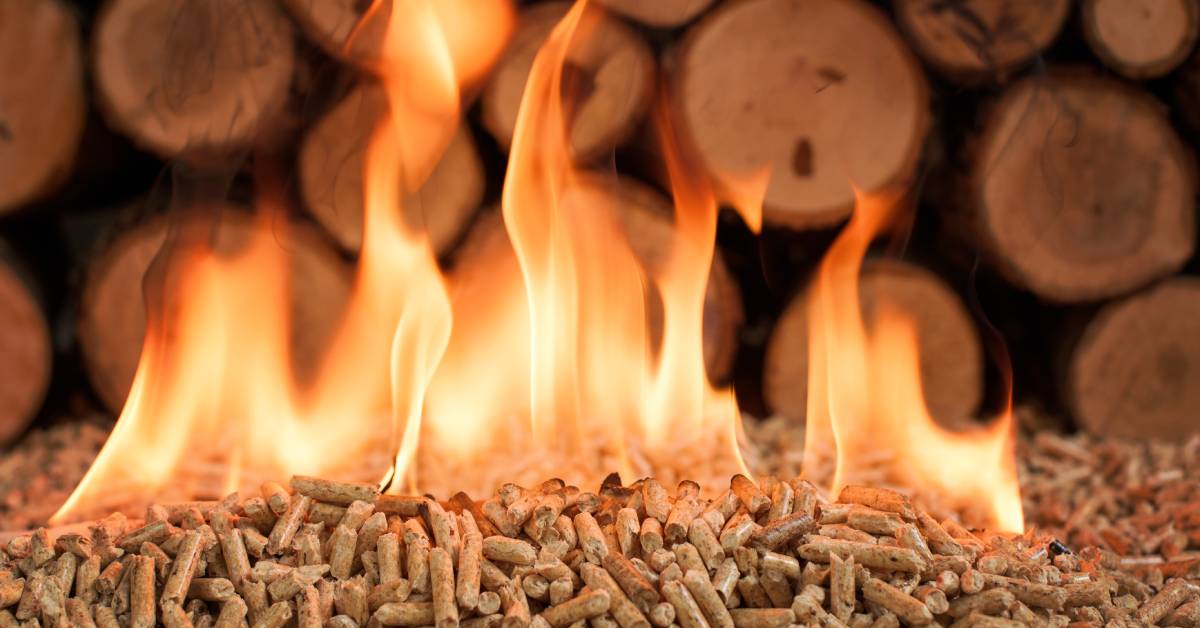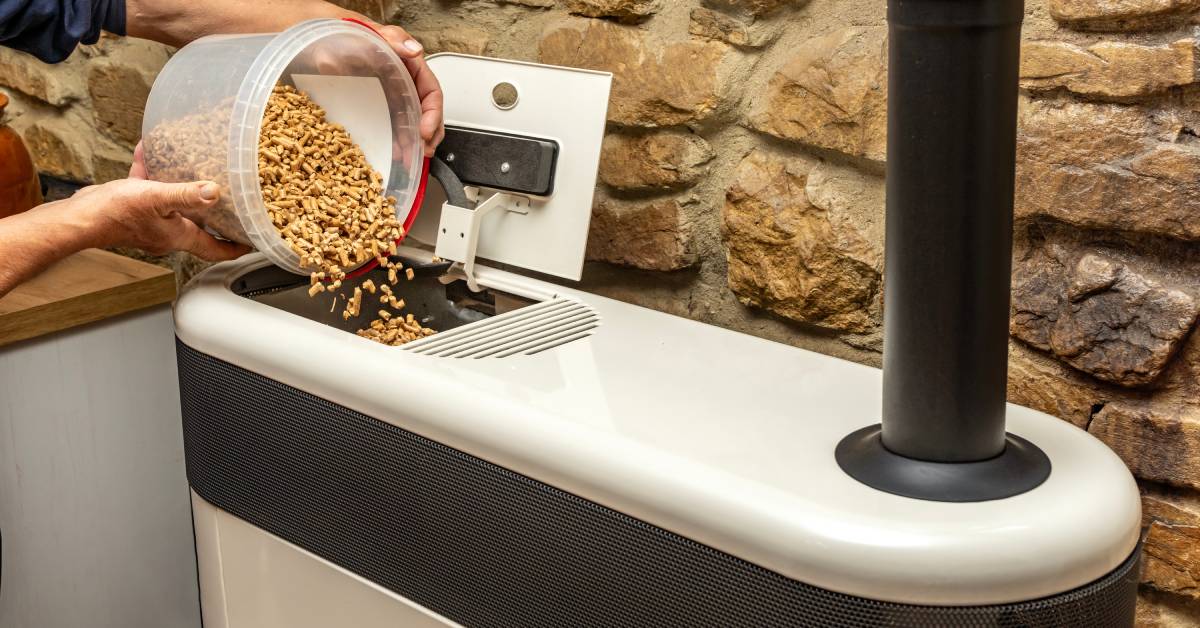
Common Myths About Pellet Stoves: Busting the Misconceptions
In recent years, pellet stoves have gained popularity as an efficient and environmentally friendly heating solution. Despite their growing importance, various misconceptions still surround these innovative devices. Understanding the reality of pellet stoves is essential for homeowners considering them as a heating option. Let’s explore several common myths about pellet stoves and bust the misconceptions to offer clarity and insight for those considering their use.
Myth 1: Pellet Stoves Are Difficult To Operate
One of the most pervasive myths about pellet stoves is that they are complicated and challenging to operate. This misconception likely arises from the advanced technology involved in modern pellet stoves. However, the truth is quite the opposite. Many contemporary pellet stoves have user-friendly interfaces and automated functions that make operation straightforward.
For instance, most models feature a hopper that automatically feeds pellets into the combustion chamber, maintaining a consistent burn without constant supervision. Similar to a traditional thermostat, users can set the desired temperature and trust the stove to manage the rest. Additionally, many pellet stoves include digital displays and convenient remote controls, further simplifying their use and making them accessible to a broad range of users.
The learning curve for operating a pellet stove is minor, making them an attractive option for anyone seeking a hassle-free heating solution. With minimal maintenance, these stoves provide a reliable heat source with little effort from the homeowner. Understanding this aspect can help potential buyers feel more confident about investing in a pellet stove.

Myth 2: Pellet Stoves Are Just Like Wood Stoves
Another common myth is the assumption that pellet stoves function similarly to traditional wood-burning fireplace stoves. While both types of stoves use solid fuel, there are significant differences between them. Recognizing these distinctions can greatly influence one’s perception of pellet stoves and their benefits.
Pellet stoves burn compressed pellets, often made from recycled wood or biomass materials, offering an eco-friendly alternative to regular firewood. This difference results in a more efficient and cleaner burn, with pellet stoves often boasting higher efficiency ratings than their wood-burning counterparts. Additionally, pellet stoves produce less ash and require less frequent cleaning, reducing the time and effort needed for upkeep.
Furthermore, pellet stoves typically use electricity to power their fans and feed systems, whereas wood stoves do not. This reliance on electricity can be seen as a drawback during power outages but is also a reason for their increased efficiency and ease of use. Such factors contribute to the widespread appeal of pellet stoves among environmentally conscious consumers.
Myth 3: Pellet Fuel Is Hard To Find and Expensive
A prevalent myth about pellet stoves is that the fuel is both difficult to find and prohibitively expensive. Contrary to this belief, pellet fuel is widely available nationwide, with many retailers and suppliers offering it year-round. This accessibility ensures that homeowners who choose pellet stoves have a steady fuel supply readily available.
In terms of cost, pellet fuel is often comparable to or even cheaper than traditional heating sources, such as oil, propane, or electricity. The price of pellets tends to remain stable, providing consumers with predictable heating expenses throughout the year. Additionally, because pellets are made from waste materials like sawdust and wood chips, they are considered a renewable resource, which can contribute to long-term cost savings and environmental benefits.
By understanding the availability and affordability of pellet fuel, homeowners can feel more assured about their choice to invest in a pellet stove. Pellet fuel’s convenience and cost-effectiveness make it an appealing option for those seeking an alternative to traditional heating methods.
Myth 4: Pellet Stoves Are Noisy
Many people believe pellet stoves are excessively noisy, creating a disruptive environment within the home. While it is true that pellet stoves require fans and augers to function, advancements in technology have significantly reduced the noise levels associated with these components.
Modern pellet stoves are designed to operate quietly, ensuring that any sound produced is minimal and unobtrusive. Manufacturers have made considerable efforts to enhance their stoves’ overall design and build quality, resulting in quieter operation. For example, some models feature soundproofing materials and advanced engineering to minimize vibrations and mechanical noise.
By selecting a high-quality pellet stove from a reputable manufacturer, homeowners can enjoy the warmth and efficiency of their stoves without the distraction of excessive noise. This can make pellet stoves an excellent choice for creating a cozy, comfortable atmosphere in any living space.

Myth 5: Pellet Stoves Require Constant Maintenance
There is a common misconception that pellet stoves demand excessive maintenance and upkeep. While regular cleaning and maintenance are necessary, the same applies to any type of heating appliance. In reality, pellet stoves are designed for ease of maintenance, with straightforward cleaning procedures and minimal time investment.
Routine maintenance primarily consists of emptying the ash pan and periodically cleaning the burn pot—tasks that can be quickly and easily completed. Additionally, many pellet stoves are equipped with self-cleaning features that further simplify these tasks, allowing users to spend less time on maintenance and more time enjoying the warmth provided by their stoves.
By adhering to a simple maintenance schedule, homeowners can ensure their pellet stoves remain efficient, safe, and effective throughout their lifespans. This dedication to upkeep ultimately results in a reliable and long-lasting heating solution for any household.
Myth 6: Pellet Stoves Are Only Suitable for Small Spaces
A prevailing myth suggests that pellet stoves are only appropriate for heating small spaces, such as cabins or tiny homes. However, pellet stoves come in various sizes and heating capacities, making them suitable for an array of living spaces.
Many stove models are designed to heat large areas, with some capable of heating entire homes. When selecting a pellet stove, it is crucial to consider the space’s specific heating requirements and choose a model that meets those needs. By doing so, homeowners can ensure that their pellet stoves provide adequate warmth and comfort, regardless of the heated area’s size.
Pellet stoves’ versatility and adaptability make them attractive choices for homeowners seeking a flexible and efficient heating solution. By dispelling this myth, potential buyers can better appreciate the possibilities offered by pellet stoves.
Myth 7: Pellet Stoves Are Not Environmentally Friendly
Some people mistakenly believe that pellet stoves are not environmentally friendly, mainly because they rely on electricity. However, pellet stoves are often considered one of the most eco-friendly heating options available.
The use of pellets made from recycled materials, such as wood waste and agricultural byproducts, reduces the carbon footprint associated with heating. The efficient combustion process in pellet stoves significantly reduces emissions compared to traditional wood-burning stoves, further enhancing their environmental appeal.
Many pellet stove manufacturers are committed to sustainable practices, offering products that align with environmentally conscious values. By choosing a pellet stove, homeowners can contribute to a greener future while enjoying the numerous benefits of these devices.
In Conclusion
Pellet stoves offer numerous benefits, including efficiency, environmental friendliness, and ease of use. Busting common myths about pellet stoves is crucial for anyone considering them as a heating solution for their home.

